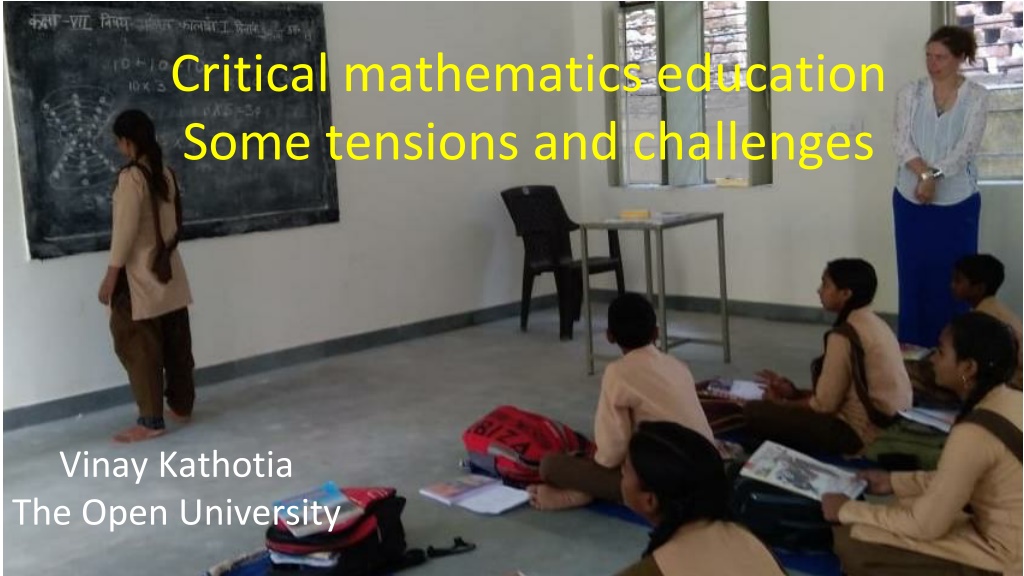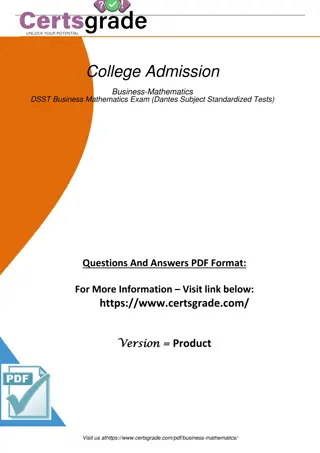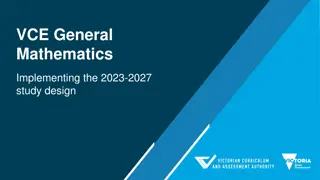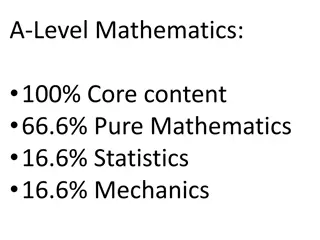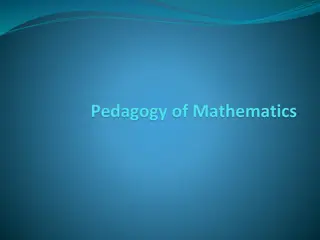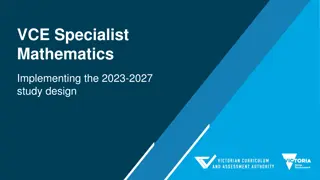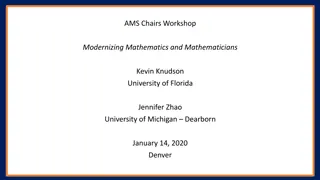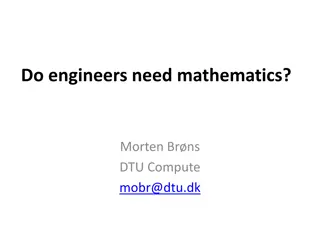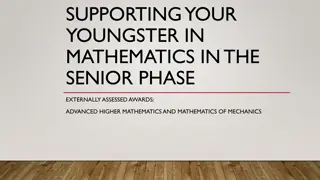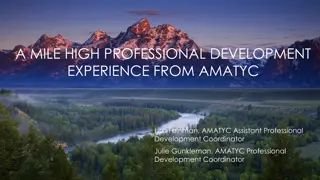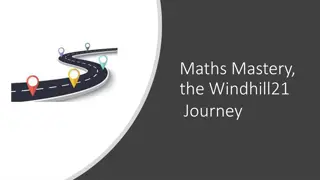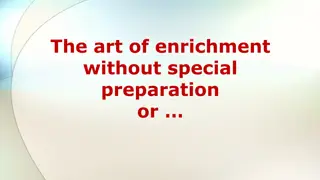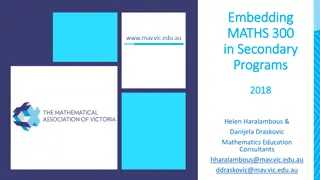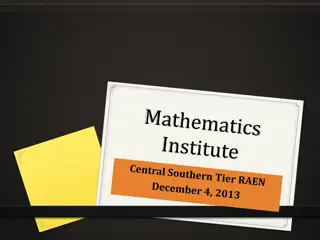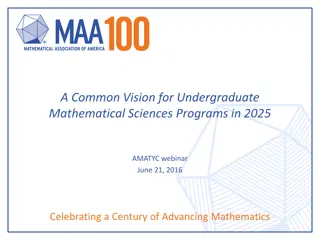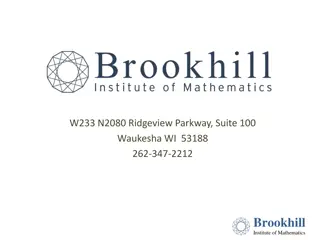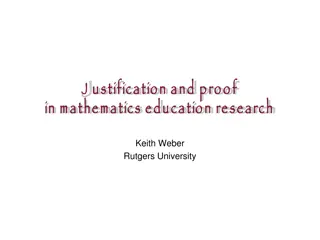Exploring Critical Mathematics Education: Challenges and Opportunities
Delve into the realm of Critical Mathematics Education to uncover how it challenges conventional mathematical practices that perpetuate inequality. Discover the empowering potential of reimagining mathematics to promote social justice and equity through student-centered approaches and critical questioning. Explore real-world examples and insights on engaging students in meaningful mathematical experiences.
Download Presentation

Please find below an Image/Link to download the presentation.
The content on the website is provided AS IS for your information and personal use only. It may not be sold, licensed, or shared on other websites without obtaining consent from the author. Download presentation by click this link. If you encounter any issues during the download, it is possible that the publisher has removed the file from their server.
E N D
Presentation Transcript
Critical mathematics education Some tensions and challenges Vinay Kathotia The Open University
Critical Mathematics Education A disclaimer! Brief introduction to Critical Mathematics Education Student-centred activity, student agency The role of the teacher 3. The nature of mathematics / mathematics education Some examples, seeds/stimuli for discussion. 1. 2.
Critical Mathematics Education (CME) Critical mathematics education aims to identify and challenge ways in which mathematics is commonly used to maintain the status quo and reproduce inequities in society. It proposes an alternative and empowering conceptualisation of mathematics, which enables people to better understand their social, political and economic situations, and to advocate and bring about changes leading to a more just and equitable society.
A Philosophy of Critical Mathematics Education I outline a philosophy of critical mathematics education by addressing conceptions of social justice, mathematics in action, students foregrounds, teachers life-worlds, sustainability, citizenship, dialogue, and critique. It is important to be critical with respect to mathematics, which means to be ready to question any form of assumed mathematical knowledge and to question any form of the bringing of mathematics in action. It is also important to be critical by means of mathematics to be ready to draw on mathematical resources when questioning cases of social injustice. (Skovsmose, 2021)
1. Student-centred mathematics How much agency, voice, control do students have? How critical is this? But perhaps the main difficulty is that we do not know what issues are going to emerge as we let the students gain ownership of their learning. (Civil, 1994)
Example from an RME classroom (Year 7) Eva: I would sit on the wing.
More on RME and engaging students Gutstein (2006) discusses some of the student related tensions of implementing curricula that students cannot identify with, and the tensions between curricular materials that help develop mathematical power but may not help analyze injustice . Contexts such as a school camping and canoe trip served to generate ideas around ratio but Gutstein s middle school students (from inner-city Chicago) reported that this context had no experiential resonance for them. But they were also happy for the teacher to deploy such contexts.
2. The role of the teacher a. Dispositions: How committed do teachers need to be to an equitable society? b. Training: How much knowledge do teachers need about topics and pedagogies for such curricula?
Teachers motivations for joining the RME trial Maths ... helps you with your life ... and I don t care what you re going to be ... a hairdresser, you re going to need some maths trying to put the learning in a context that the kids care about and that makes sense to them this ownership of why we use the formulas that we do desire to nurture the weakest students, doing the right thing by them (Kathotia et al, 2021)
On teachers motivations What motivates teachers to develop critically informed citizens in the mathematics classroom? (Ghosh, 2021)
Belief-systems from Ernest (1991), used in (Ghosh, 2021) but without using the progressive nature of the original table .
3. The nature of mathematics (CC BY-NC 2.5 xkcd)
3. The nature of mathematics The Myth of Neutrality: Mathematics Education is Political (Martin et al, 2010) We don t have all the answers a pluralist approach to mathematics We don t have to do it alone mathematics and statistics in/for other subjects Argumentation and contestation suggests agonistic democracy as a pedagogy.
An agonistic account of democracy an emphasis on the values of constitutive pluralism, robust contestation and enduring tragedy, where the latter entails recognition of the ineliminable nature of (political) conflict without the expectation of finding any final or perfect solutions and; an acceptance of difference and disagreement as constitutive and constructive elements (Hammersley-Fletcher et al, 2018)
References Civil, M. (1994). Connecting the home and school: Funds of knowledge for mathematics teaching and learning. Draft. Paper presented at the annual meeting of the American Educational Research Association, New Orleans, LA. (ERIC Document Reproduction Service No. ED 370 987) Ernest, P. (1991). Mathematics teacher education and quality. Assessment and Evaluation in Higher Education, 16(1), 56 65. Ghosh, S. (2021). What motivates teachers to develop critically informed citizens in the mathematics classroom? Philosophy of Mathematics Education Journal, 37. Gutstein, E. (2006). Reading and writing the world with mathematics: Toward a pedagogy for social justice. New York: Routledge. Hammersley-Fletcher L., Clarke, & M., McManus, V. (2018). Agonistic democracy and passionate professional development in teacher-leaders. Cambridge Journal of Education, 48 (5). pp. 591-606. Kathotia, V., O Brien, K., & Solomon, Y. (2021). Just mathematics? Fostering empowering and inclusive mathematics classrooms with Realistic Mathematics Education. In D. Kollosche (Ed.), Proceedings of the Eleventh International Mathematics Education and Society Conference (Vol. 1, pp. 376 XX). Tredition. Martin, D. B., Gholson, M. L., & Leonard, J. (2010). Mathematics as gatekeeper: Power and privilege in the production of knowledge. Journal of Urban Mathematics Education, 3(2), 12 24. Skovsmose, O. (2021). A philosophy of critical mathematics education. Philosophy of Mathematics Education Journal, 37.
